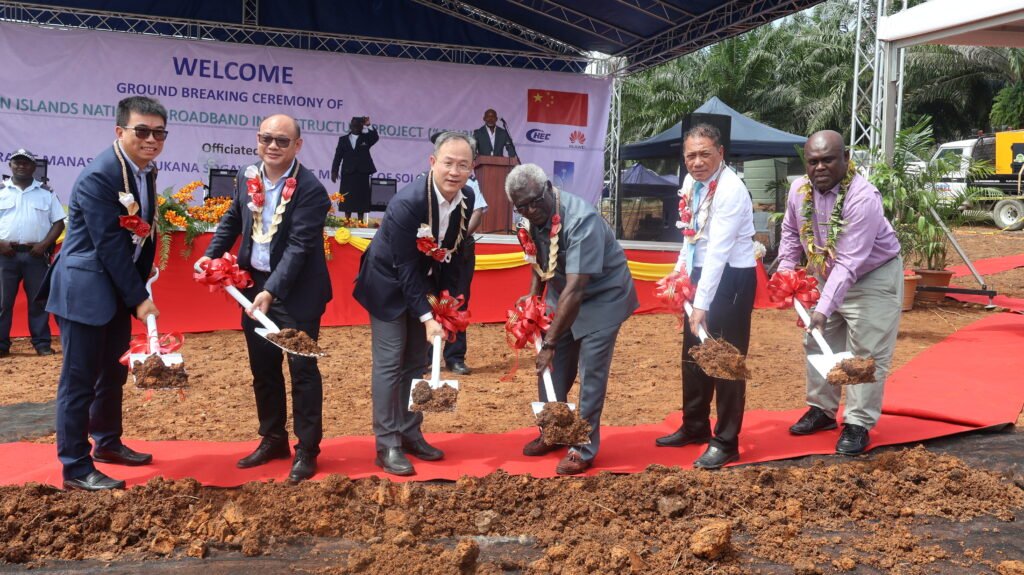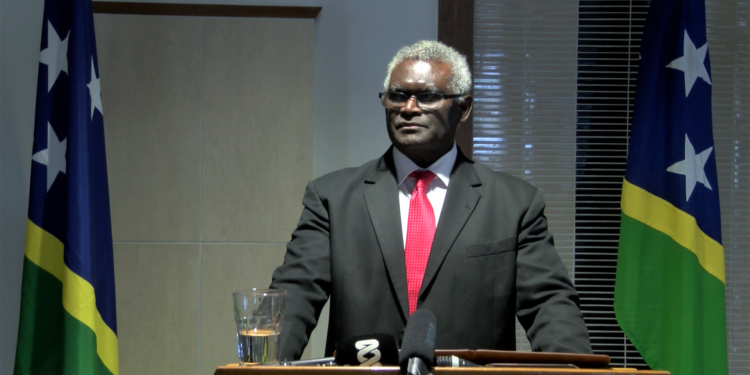Prime Minister Manasseh Sogavare emphasized that concerns surrounding a “debt trap” will not hinder the Solomon Islands’ plans and commitment to advancing its developmental goals. Speaking during the groundbreaking ceremony on the launch of the construction of 161 communication towers, Sogavare remained resolute in pursuing the government’s future-focused agenda.
The event marked the initiation of the Solomon Islands National Broadband Infrastructure Project (SINBIP), which aims to enhance telecommunications and internet services across the country. Funded entirely by a concessional loan of approximately US$65 million from the Exim Bank of China, the project carries a minimal interest rate of one percent.
An independent financial evaluation conducted by a New Zealand expert revealed robust financial indicators for the SINBIP. Notably, the project showcases a Financial Net Present Value of around US$65 million, an Internal Rate of Return of 8.86%, and an Investment Recovery Period of 11.4 years, along with an Investment Profit Ratio of 11.23%.
Sogavare underlined the project’s positive economic outlook and its potential to recoup investments. The analysis further demonstrated a favorable Debt Paying Ability, characterized by strong Interest Coverage and Debt Service Coverage ratios. This confirms the project’s capacity to meet its financial obligations.
Addressing skepticism surrounding debt-related concerns, Sogavare emphasized the government’s unwavering commitment to securing the country’s future. He dismissed any attempt to derail their developmental progress, stating, “We are undeterred by misinformation, including debt traps. Our focus remains fixed on a brighter future for our people.”
Sogavare extended an invitation to all development partners to intensify collaboration in pursuit of the Solomon Islands’ 2030 Agenda. He stressed the project’s significance for the nation’s economic and social advancement, highlighting the role of high-speed broadband in driving innovation and economic growth.
The Prime Minister emphasized that investments in national broadband networks hold immense potential, contributing to income generation, enterprise growth, and long-term development. He noted the far-reaching impact of improved connectivity, particularly in remote and rural areas, enabling telemedicine, distance education, and public services.
In contrast, the current telecommunications landscape in Solomon Islands is limited, with significant gaps in coverage and technology. Sogavare said the necessity of modernizing the country’s network is to unlock its economic and societal potential.

Source: OPMC Press Secretariat































![Chovohio [left] and Charivunga [right] confluence, to create a dam for sediment control](https://www.tavulinews.com.sb/wp-content/uploads/2025/04/Add-a-heading-43-360x180.png)

















































